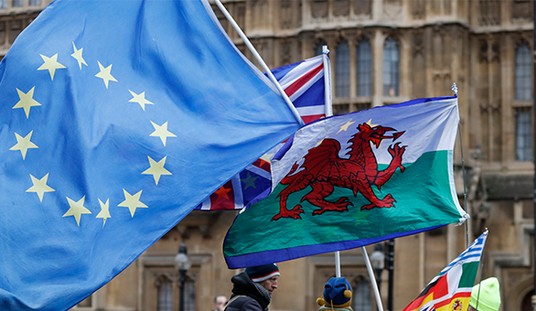As CNN says, Ukraine “should have seen this one coming,” and they almost certainly did anticipate that the next phase of the war would be economic. In fact, the new government in Kyiv may have assumed that raising prices on Russian energy imports would be the first phase of the conflict, not the seizure and annexation of Crimea. Over the last few days, though, Gazprom has raised gas prices by 80% to Ukraine as Russian troops still gather on their common border:
Prime Minister Arseniy Yatsenyuk affirmed that Kyiv expected this all along:
Russia raised the gas price for Ukraine on Thursday for the second time this week, almost doubling it in three days and piling pressure on a neighbor on the brink of bankruptcy in the crisis over Crimea.
The increase, announced in Moscow by Russian natural gas producer Gazprom, means Ukraine will pay 80 percent more for its gas than before the initial increase on Monday.
Prime Minister Arseny Yatseniuk said the latest move, two weeks after Moscow annexed Ukraine’s Crimea region, was unacceptable and warned that he expected Russia to increase pressure on Kiev by limiting supply to his country.
“There is no reason why Russia would raise the gas price for Ukraine … other than one – politics,” Yatseniuk told Reuters in an interview in the Ukrainian capital Kiev.
“We expect Russia to go further in terms of pressure on the gas front, including limiting gas supplies to Ukraine.”
This isn’t just a message to Kyiv, though. It’s a message to eastern Europe as well, especially NATO partners who have begun to mobilize their own forces in response to a newly-acquisitive Russian state. Vladimir Putin wants to play hardball on economics at the least, and insists on assigning a price to a refusal to accept his new hegemony in the region.
Ukraine will start looking elsewhere for its energy — and its coal deposits are one obvious choice:
Energy Minister Yuriy Prodan called Russia’s new price “political” and vowed to explore solutions that included a heavier reliance on coal — a polluting source of energy whose consumption has imperilled the air quality of nations such as China.
“We are now reviewing our electricity and fuel balance for 2014 with a view of using as much domestic coal as possible at the expense of natural gas,” Prodan told a cabinet meeting in comments posted on the government website.
Ukraine has relied on coal throughout much of the past century despite efforts by global institutions such as the World Bank to help Kiev phase out its use following independence from Moscow.
The International Energy Agency estimates that coal accounts for about 30 percent of Ukraine’s total energy supply compared to the 40 percent of the balance assumed by natural gas.
That will no doubt alarm environmentalists, and again not just because of Ukraine. This same choice faces all of Europe, which had relied on cheap Russian imports rather than extract their own natural gas and even coal. Those days may be gone, and Europe will have to take another look at tracking to stand off the Russians at their own game of economic war. The US can help with exports of liquid natural gas (LNG), but that would take years to accomplish, and it still leaves Europe dependent on outside resources rather than their own.
Putin’s latest move shows once again just how badly the West calculated his intentions. They assumed that the Russian energy trade would bring Moscow into tighter integration, but Putin saw it as a lever for geopolitical power. Bloomberg asked Chuck Hagel whether the Obama administration miscalculated on Putin, which Hagel denies … and almost in the same breath admits that they don’t understand his motives:
Hagel cites the invasion of Georgia in 2008 as an example of how the Obama administration didn’t misjudge Putin, but what was the Obama administration’s response to it? They undid the Bush administration’s diplomatic policies in response to that, complete with the ludicrous “reset button” from Hillary Clinton that declared all of the US-Russian difficulties the fault of Barack Obama’s predecessor. They then dismantled the missile-shield system and pledged more “flexibility” to Putin after the 2012 elections on that point. The response from Putin has been to seize on that show of weakness. What’s not to understand?








Join the conversation as a VIP Member